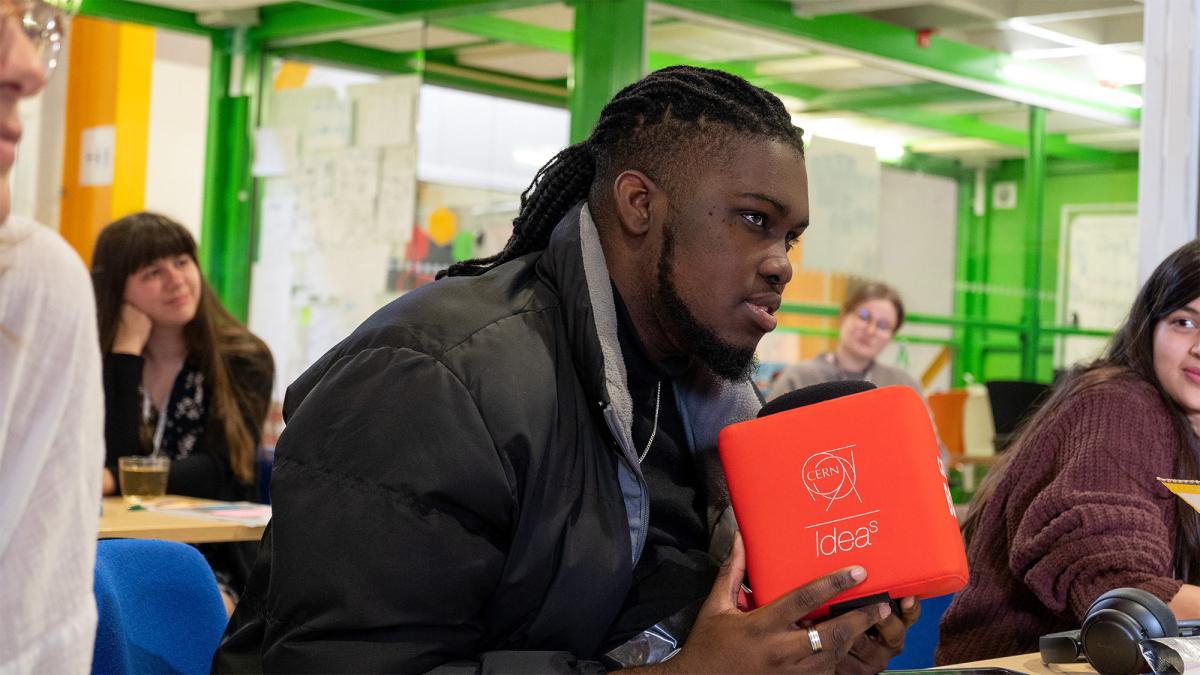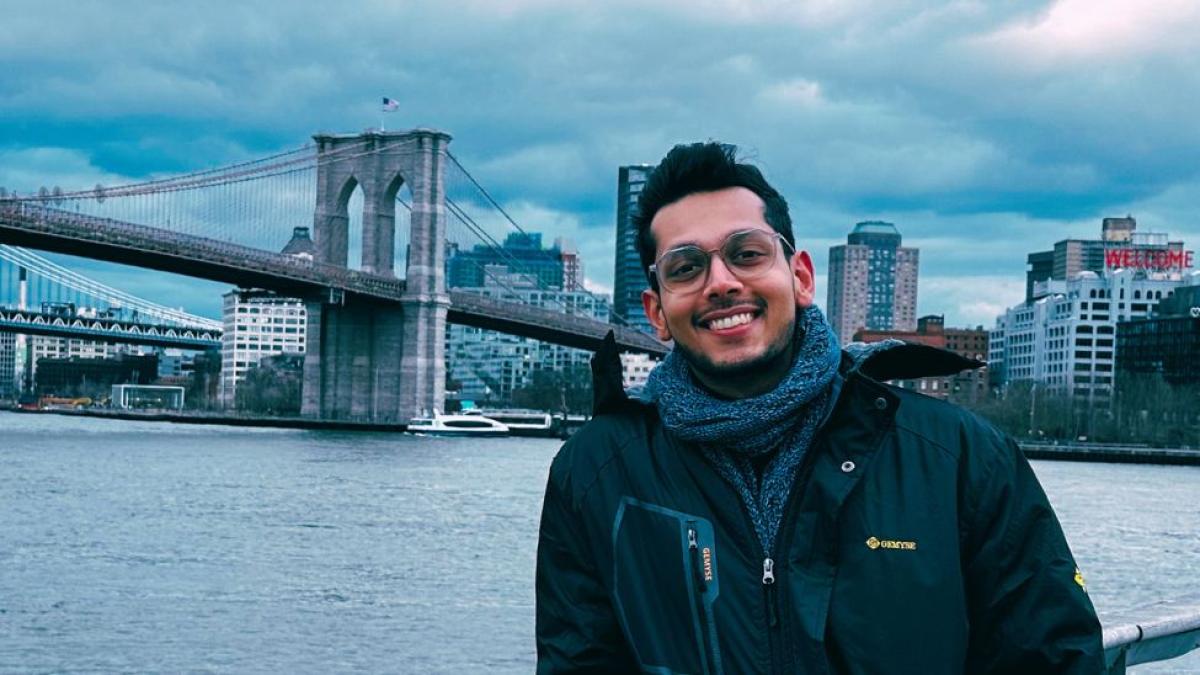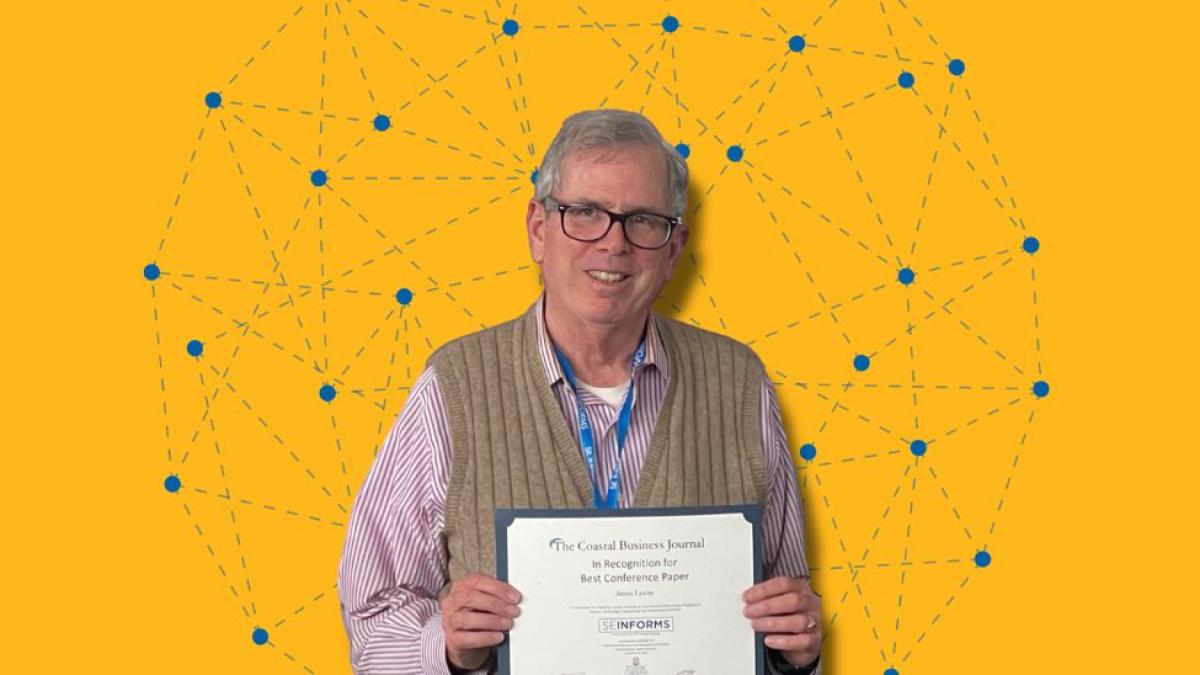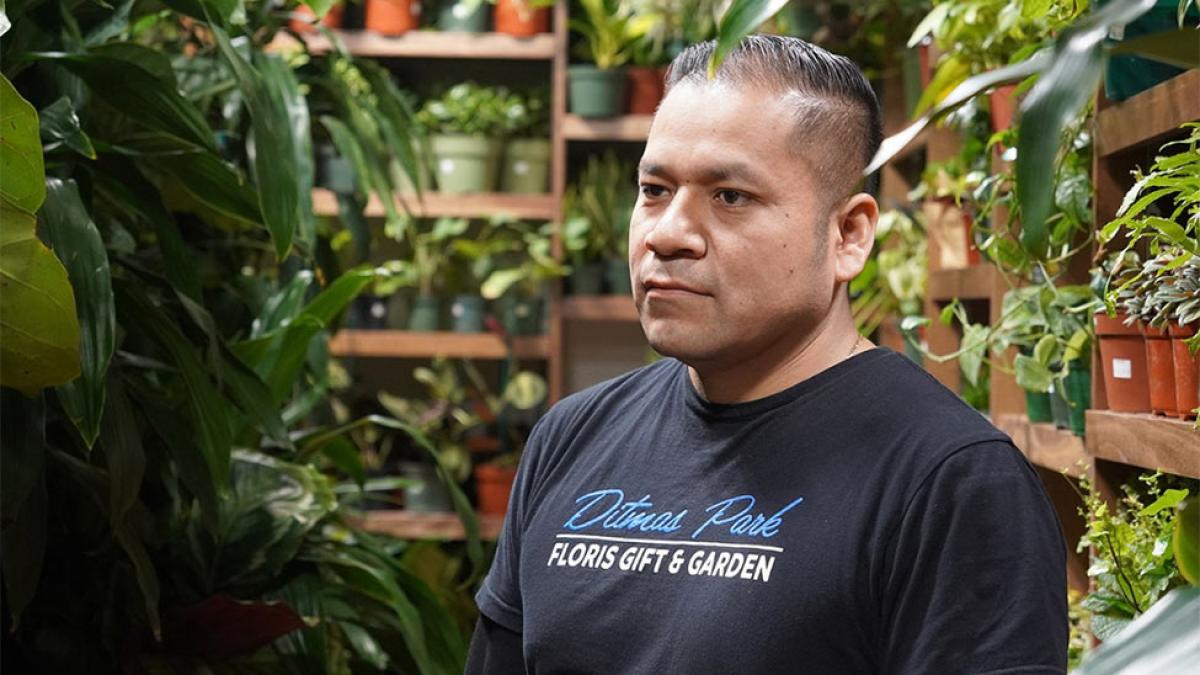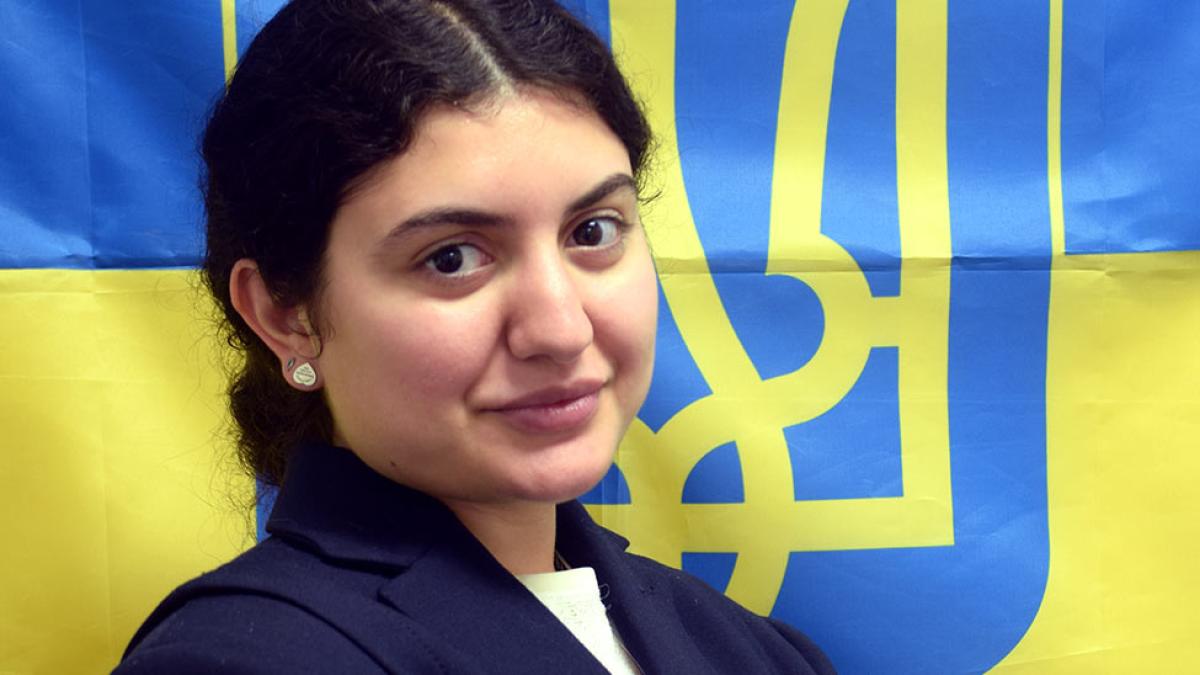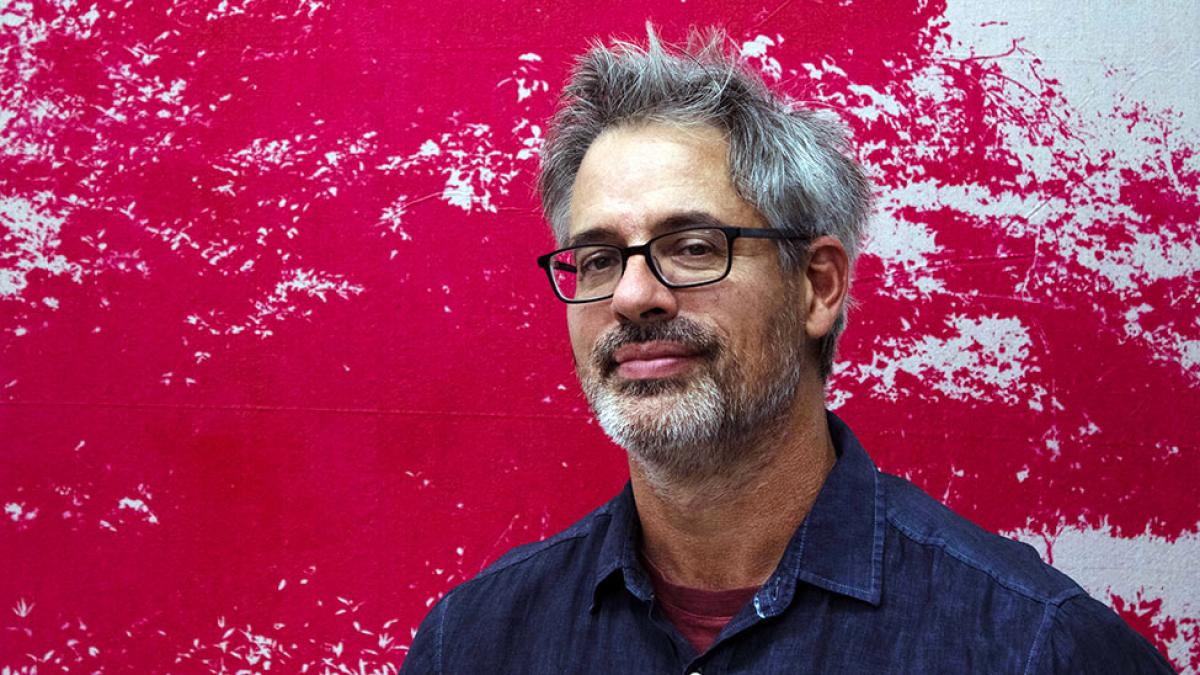
Environmental Justice and Human Rights Scholar Rebecca Bratspies to serve as a Visiting Professor of Environmental Law and Haub Visiting Scholar at the Elisabeth Haub School of Law at Pace University
The Elisabeth Haub School of Law at Pace University is pleased to announce that Professor Rebecca Bratspies will serve as a Visiting Professor of Environmental Law and Haub Visiting Scholar at the Elisabeth Haub School of Law at Pace University for the spring 2024 semester.


The Elisabeth Haub School of Law at Pace University is pleased to announce that Professor Rebecca Bratspies will serve as a Visiting Professor of Environmental Law and Haub Visiting Scholar at the Elisabeth Haub School of Law at Pace University for the spring 2024 semester. Professor Bratspies is a Professor at CUNY School of Law, where she is the founding director of the Center for Urban Environmental Reform. While at Haub Law, Professor Bratspies will teach Administrative Law and a Health and the Environment seminar.
“Haub Law’s environmental program is renowned for its innovative curriculum, and we pride ourselves in exposing our student and faculty community to scholars at the top of their fields,” said Kerlin Distinguished Professor of Environmental Law, Associate Dean for Environmental Law Programs and Strategic Initiatives, Jason J. Czarnezki. “We are thrilled to welcome Professor Bratspies to Haub Law. A scholar in environmental justice and human rights law, her knowledge and forward-thinking is a perfect complement to our environmental law program. Each of our students who participate in her class will leave with an additional and enhanced perspective on the field.” While at Haub Law, Professor Bratspies will also deliver the School’s annual Lloyd K. Garrison Lecture on Environmental Law. "A highly-sought after scholar and teacher, Professor Bratspies, and her deep commitment to law in the service of human needs will find a warm and receptive home at Haub Law. Students and faculty alike are looking forward to her Spring visit,” notes Achinthi Vithanage, Associate Director of Environmental Law Programs.
Professor Bratspies has written scores of law review articles which have been published in a variety of prestigious publications. Her most recent book Naming Gotham: The Villains, Rogues and Heroes Behind New York Place Names, won the New York Public Historians 2023 award for Excellence in Local History. Her co-authored textbook Environmental Justice: Law Policy and Regulation is used in schools across the country. Professor Bratspies is perhaps best known for The Environmental Justice Chronicles—her award winning environmental justice comic books Mayah’s Lot, Bina’s Plant, and Troop’s Run, made in collaboration with artist Charlie LaGreca-Velasco. EPA recognized this work with the 2023 Clean Air Act Award for Excellence in Education/Outreach.
Professor Bratspies serves on NYC’s Environmental Justice Advisory Board, is a member-scholar with the Center for Progressive Reform, a board member of the Environmental Law Collective, and a member of the NYC Bar Environmental Committee. ABA-SEER honored her work with its 2021 Commitment to Diversity and Justice Award. She was named the Center for International Sustainable Development Law’s 2022 International Legal Specialist for Human Rights Award, and her environmental justice advocacy has been awarded the PSC-CUNY “In It Together” Award, and the Eastern’ Queens Alliance’s Snowy Egret Award. In 1994-95, she was a Luce Scholar seconded to the Republic of China Environmental Protection Administration in Taipei, Taiwan. Before that, she served as a law clerk to the Honorable C. Arlen Beam on the Eighth Circuit Court of Appeals. Professor Bratspies holds a JD cum laude from the University of Pennsylvania, and a BA in Biology from Wesleyan University.
“I'm honored to spend time with the Haub Law community as a Haub Visiting Scholar,” said Professor Rebecca Bratspies. “I look forward to the spring semester and sharing my research and ideas with Haub Law's impressive student body, faculty, and staff towards furthering our common goal and commitment to environmental justice.”
In their roles at Haub Law, Haub Visiting Scholars collaborate with faculty, guest lecture classes, and work closely with students in the Environmental Law Program and others. As previously announced, funding for the Haub Visiting Scholars was made possible by a gift from the Haub family in recognition of the essential role of environmental science, informatics and other technology and allied fields towards formulating environmental policy and law.
A Passion for Advocacy: Angelica Cancel '17
Passionate about social justice issues from a young age, Angelica Cancel ‘17 knew she wanted to be an advocate, but wasn’t sure what that looked like for her.


Passionate about social justice issues from a young age, Angelica Cancel ‘17 knew she wanted to be an advocate, but wasn’t sure what that looked like for her. “I was a Philosophy and Political Science major in college and the pieces just kind of fell into place. I took a few constitutional law classes and found myself really excited about the material,” said Angelica. “From there, I developed mentoring relationships with some attorneys. The idea of going to law school became more of a real possibility and when I thought about it, it felt right.”
Once she enrolled at Haub Law, Angelica knew she was in the right place. “The student-faculty ratio, location in Westchester and proximity to NYC, and the public service and advocacy programs all appealed to me. From the very beginning, Haub Law felt like a community.” At Haub Law, Angelica was heavily involved in both the Latin American Law Student Association and the Advocacy Program, both of which she describes as crucial to her development as a student and attorney.
Today, Angelica is a staff attorney with the Civil Action Practice at The Bronx Defenders. Her practice focuses on housing, employment, and civil rights. Working with The Bronx Defenders is exactly what Angelica hoped to do – engage with her community and more meaningfully pursue social justice initiatives. “As a Latina from the Bronx, I had been following and admiring the work of the organization for a long time and feel fortunate to be part of it now.”
Angelica notes that her day-to-day responsibilities vary as a staff attorney, but the tools she learned through her participation with the Advocacy Program at Haub Law have proved invaluable. “One day, I can be in Bronx Housing Court presenting oral argument or negotiating settlement agreements. The next day, I can be predominantly on the phone following up with clients, opposing counsel, and various agencies. The following day, I am drafting dispositive motions, advocacy letters, and responsive papers. Our office also heavily emphasizes a holistic defense model which means collaborating with other practice groups to address all a client’s needs. Being a public defender illuminates just how much various systems affect one another, which has been essential to becoming a better advocate and community member.”
It was through her participation in the Advocacy Program at Haub Law that Angelica began to build her confidence. “I am the first in my family to attend law school and sometimes I had many moments of self-doubt and insecurity. The Advocacy Program instilled confidence in me from the very beginning. I started with the 1L competition. Somehow, I got through it, advanced, and received positive feedback. I competed in a national competition with my now husband, Jordan Montoya ‘17, and a close friend, Richard Roman ‘17, and we won! I had the opportunity to travel to Florida, Puerto Rico and Vienna, Austria (twice). Of course, those were transformative and beautiful experiences that I will never forget, but more importantly than any travel or accolade, were the relationships I formed with mentors, teachers, and colleagues,” recalls Angelica. “I learned so much from my teammates and coaches, constantly. You develop such a comradery as you go from late nights practicing answering questions in the fishbowl to rooting for each other silently during a stressful round. I knew I wanted to eventually teach as an adjunct professor and coaching advocacy teams upon graduation. After a few years practicing, I was granted that opportunity and have since coached 10 teams.”
Recently, Angelica started teaching Advanced Appellate Advocacy at Haub Law as an Adjunct Professor. “I feel so incredibly grateful to not only teach, but in many ways, learn again. In Advanced Appellate Advocacy, students are so vulnerable in presenting and organizing a complex legal argument. I feel proud to hear their questions, watch them grow as speakers, and perform with confidence and persuasiveness. The students in the class are so talented and it’s been such a gift to be a witness to their passion. It has been a truly full circle experience being able to give back to the Haub Law community that taught me so much.”
Haub Law's Negotiation Team Advances to the Semi-Finals in the Villanova Baseball Filing Day Competition
Haub Law's negotiation team advanced to the semi-finals in the Villanova Baseball Filing Day Competition held November 3-4, 2023 at Villanova University Charles Widger School of Law.
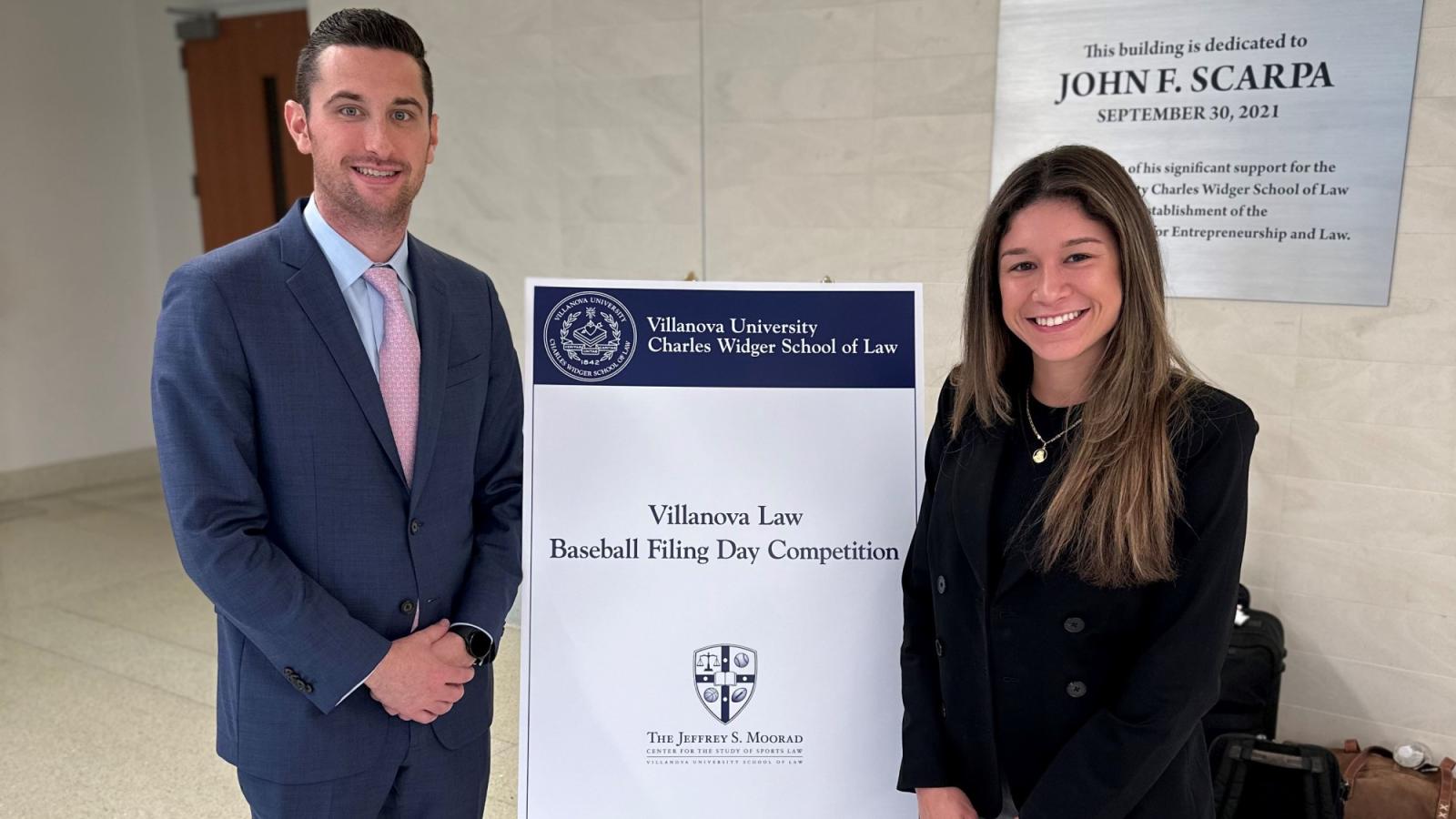
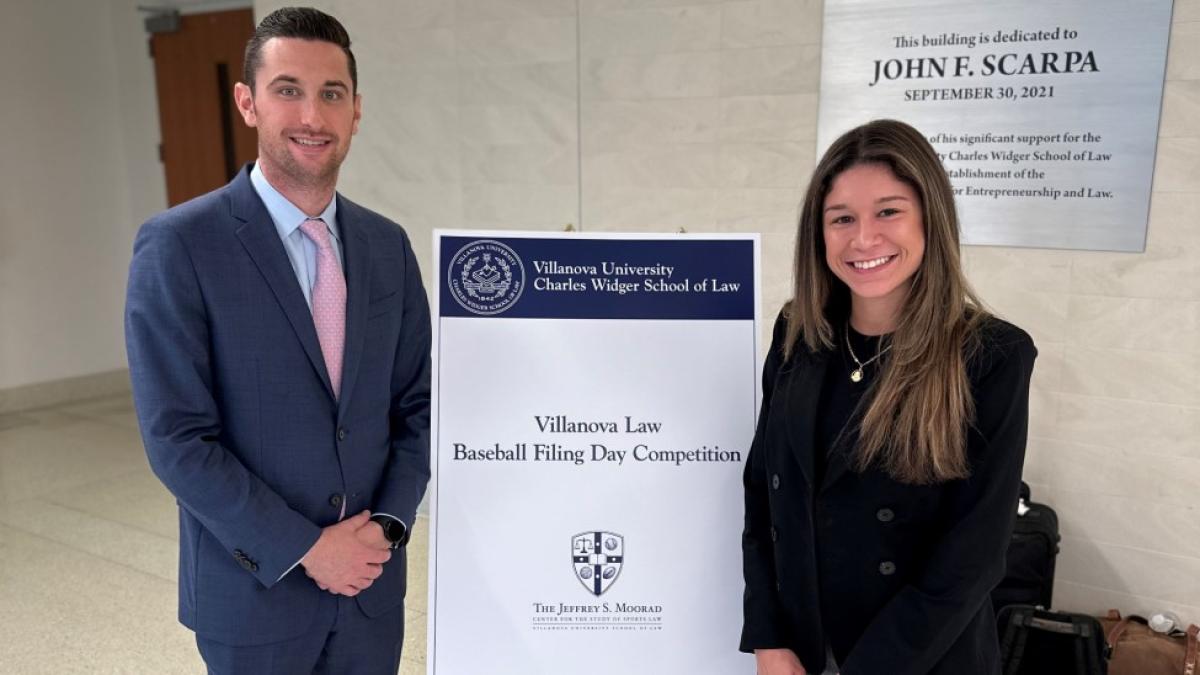
Haub Law's negotiation team advanced to the semi-finals in the Villanova Baseball Filing Day Competition held November 3-4, 2023 at Villanova University Charles Widger School of Law. Under the coaching of Pace Alumni, Dan Masi ‘14, the 3L team of Devin Auriana and Crystal Lichtenberger won all three rounds of negotiations on Day 1 and advanced to Day 2, where they had 12 hours to prepare for the quarter-finals round. After winning the quarter-finals round, Devin and Crystal narrowly missed out on advancing to the finals, falling to the eventual champions.
The Villanova Baseball Filing Day Competition is a simulated exercise intended to mimic negotiations between MLB Players Association (MLBPA) player agents and MLB club executives before the salary arbitration Exchange Date between the MLB Labor Relations Department and the MLBPA as governed by Major League Baseball's Basic Agreement. Participants build oral advocacy and negotiation skills while handling baseball statistics and player valuation information in order to come to resolution with opposing counsel.
A Global Pathway to Immigration Law: Lina Arboleda, LLM ‘23
With a desire to fully understand the US legal system, Lina Arboleda applied to the Elisabeth Haub School of Law at Pace University to pursue her LLM in Comparative Legal Studies. She shares that she was particularly impressed by a law school named after a woman.
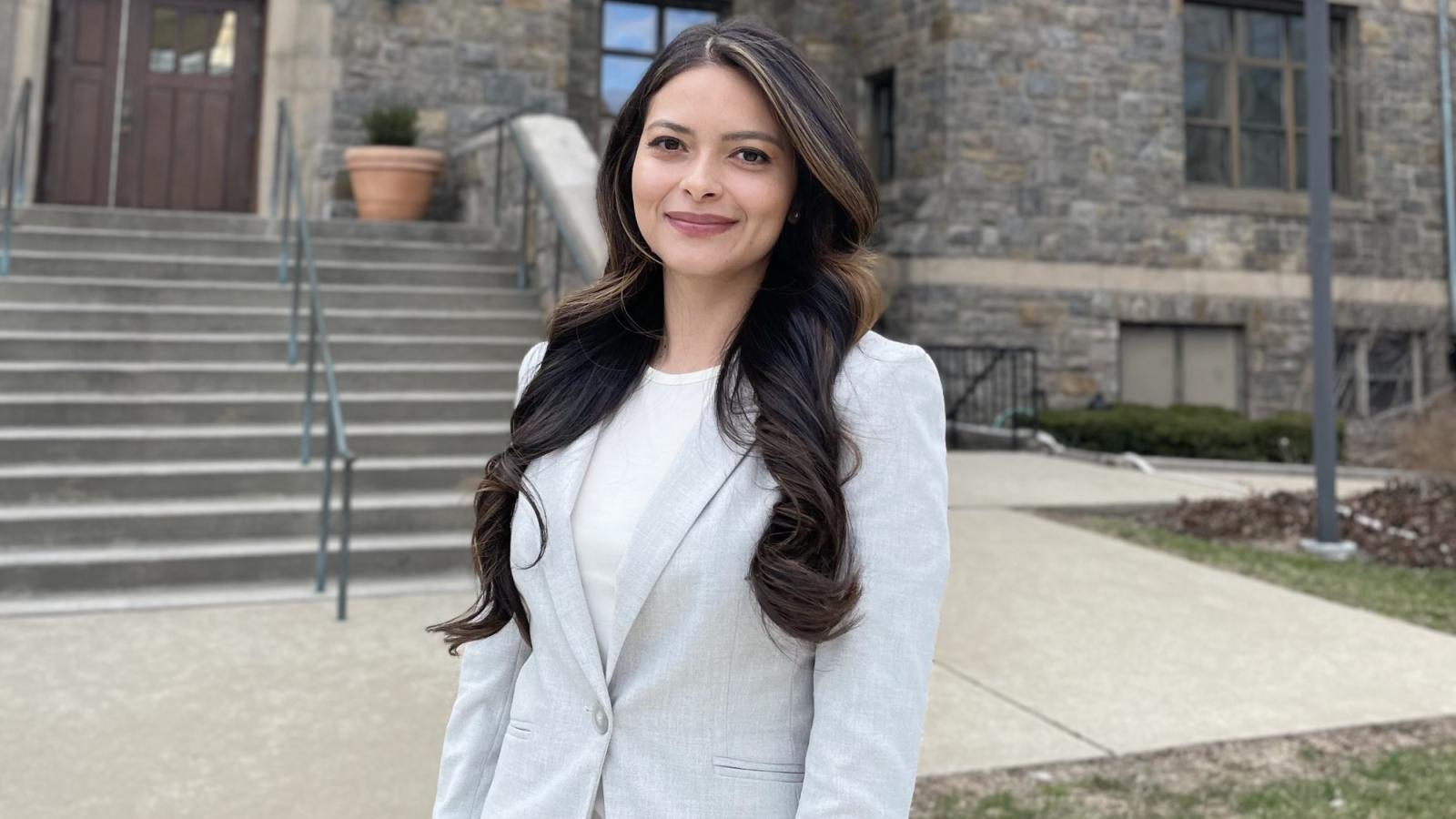
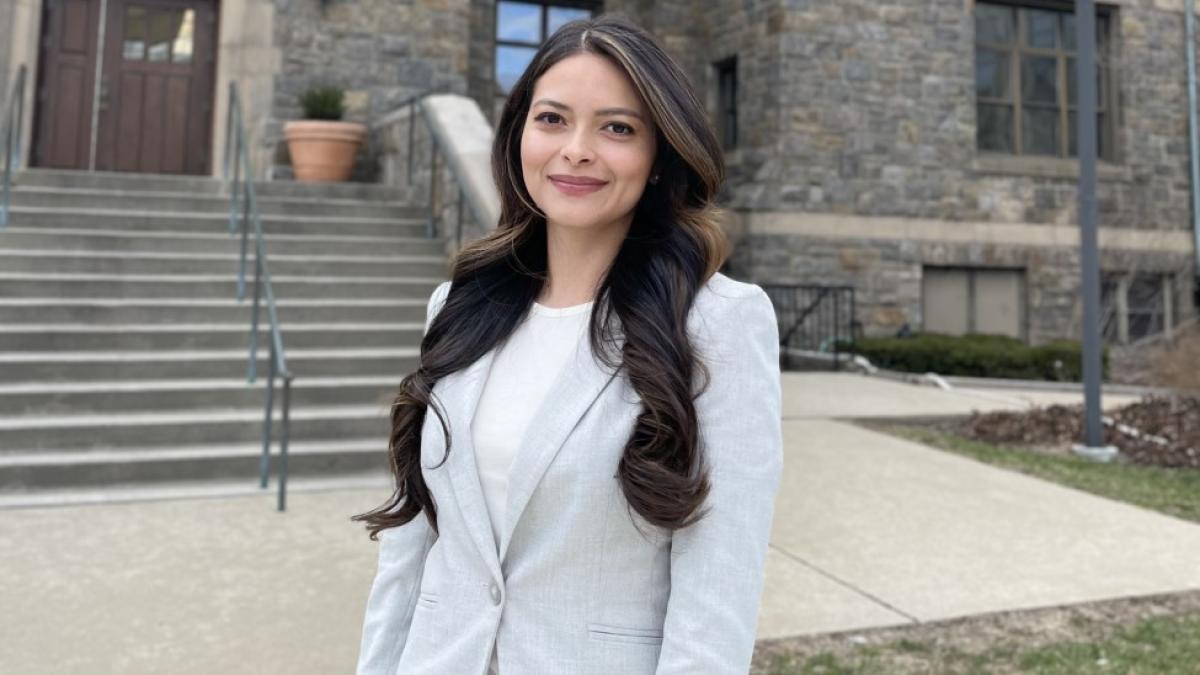
With a desire to fully understand the US legal system, Lina Arboleda applied to the Elisabeth Haub School of Law at Pace University to pursue her LLM in Comparative Legal Studies. She shares that she was particularly impressed by a law school named after a woman. “Although environmental law is not on my radar now, I admire Elisabeth Haub’s environmental advocacy and philanthropic work. As a woman and Latina, I know how difficult it is for women to open paths and advocate for good causes,” said Lina. During her time at Haub Law, Lina appreciated the diversity at the Law School. “Haub Law embraces diversity; the students, professors, and administrative staff always made me feel welcome.”
Originally from Colombia, Lina did not always desire to be a lawyer. “My sister and I are the first generation in our entire family to pursue higher education,” said Lina. “In high school, I participated in different forums of social sciences, philosophy, and politics. We discussed different social issues, including the rights of affected communities, victims of forced displacement and civil war. At that moment, I knew I was curious about how the legal system worked in my country and how the law could be used to protect these communities. This curiosity and desire to learn how to use the law to benefit affected or vulnerable populations, led me to study law at the Universidad de Medellín.”
Today, Lina is a staff attorney at Lutheran Social Services of New York where she helps provide Pro Se immigration legal information sessions, including but not limited to Know Your Rights, Employment Authorization Documents, Temporary Protected Status, and Asylum. “Additionally, we provide consultations, limited representation and legal clinics to asylum seekers and arrivals. I’m responsible for training and supervising the work of the paralegals, and for coordinating logistics and pre-screenings, so the information sessions and clinics run smoothly.”
Lina is passionate about the areas of real estate and immigration law. Previously, she worked as a paralegal in a law firm where she was part of negotiations with other attorneys, banks, developers, and investors. It was this experience that revived her desire to practice law and learn more about the US legal system. “However, although I’m still passionate about real estate, I decided to transition into immigration law,” said Lina. “I feel that as an immigrant, it is an area of law where I can contribute the most with the use of my bilingual skills and at the same time, be consistent with my initial desire to use the law to benefit affected or vulnerable populations.”
During her time at Haub Law, Lina’s favorite experiences included meeting people from all over the world. “I believe that diversity brings with it other perspectives and ways of looking at life that we are not otherwise aware of. I was amazed to see the preparation, high-level skills, and integrity that these lawyers bring from their countries.” After graduating in 2023, Lina was able to ultimately fulfill her goal of better understanding the US legal system.
“I would absolutely encourage others to pursue their LLM at Haub Law. Whether you want to practice law here or not, it is a great opportunity to expand your knowledge, learn about new cultures, and share your legal experience with others.”
Why The Humanities Matter More Than Ever—Even When You Keep Hearing Otherwise
Do the humanities still matter?
That’s been the question in headlines about higher education lately. The New York Times weighed in last week, examining the “existential crisis” facing these classic liberal arts programs nationwide. A big article in The New Yorker early in the year kicked off the serious hand-wringing, arguing that traditional liberal arts study has become the quaint province of a privileged elite, students who don’t require a return on their tuition investment and can afford to spend time on unremunerative pursuits. Next, as if to prove the point, over the summer the University of West Virginia said that in order to cut a yawning budget deficit it would cut a range of programs, from world languages to creative writing. Meanwhile, lower-profile announcements keep coming that smaller colleges facing enrollment challenges are eliminating less-popular majors, often in the humanities, to stay afloat.
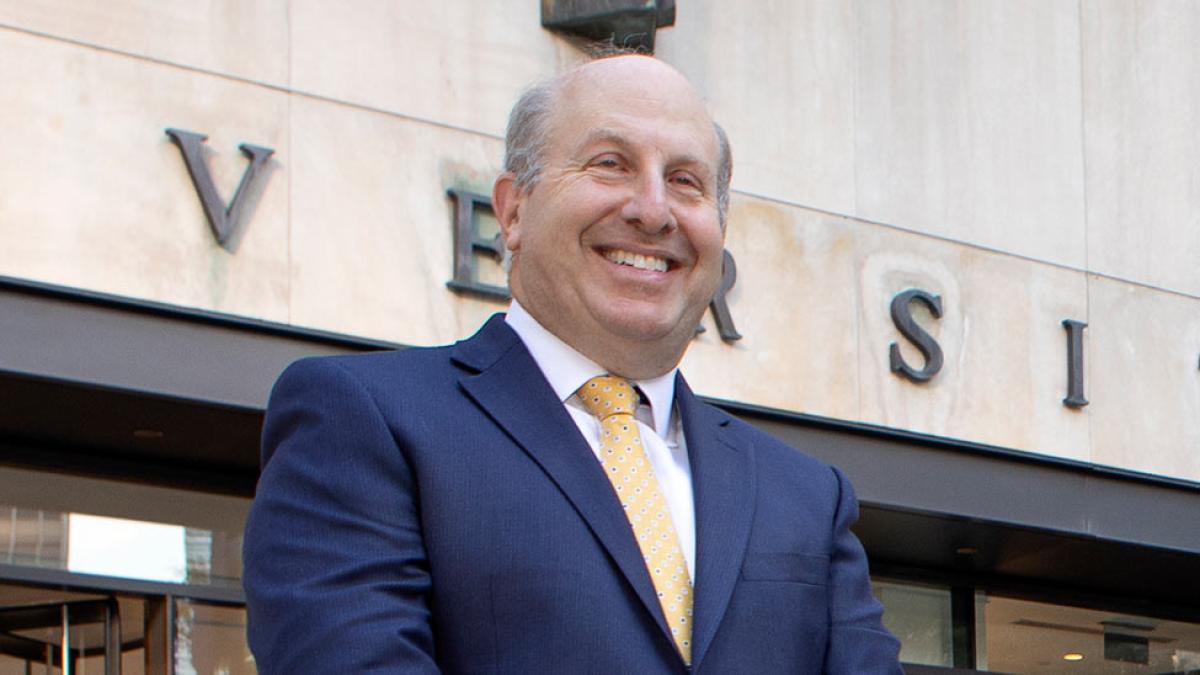
From Pixel to Product: A Game Developer's Quest
When Michael Falco took new course Game Development for Everyone, he never expected to end up building and coding his own arcade game—which you can play at its home on the Pleasantville Campus!
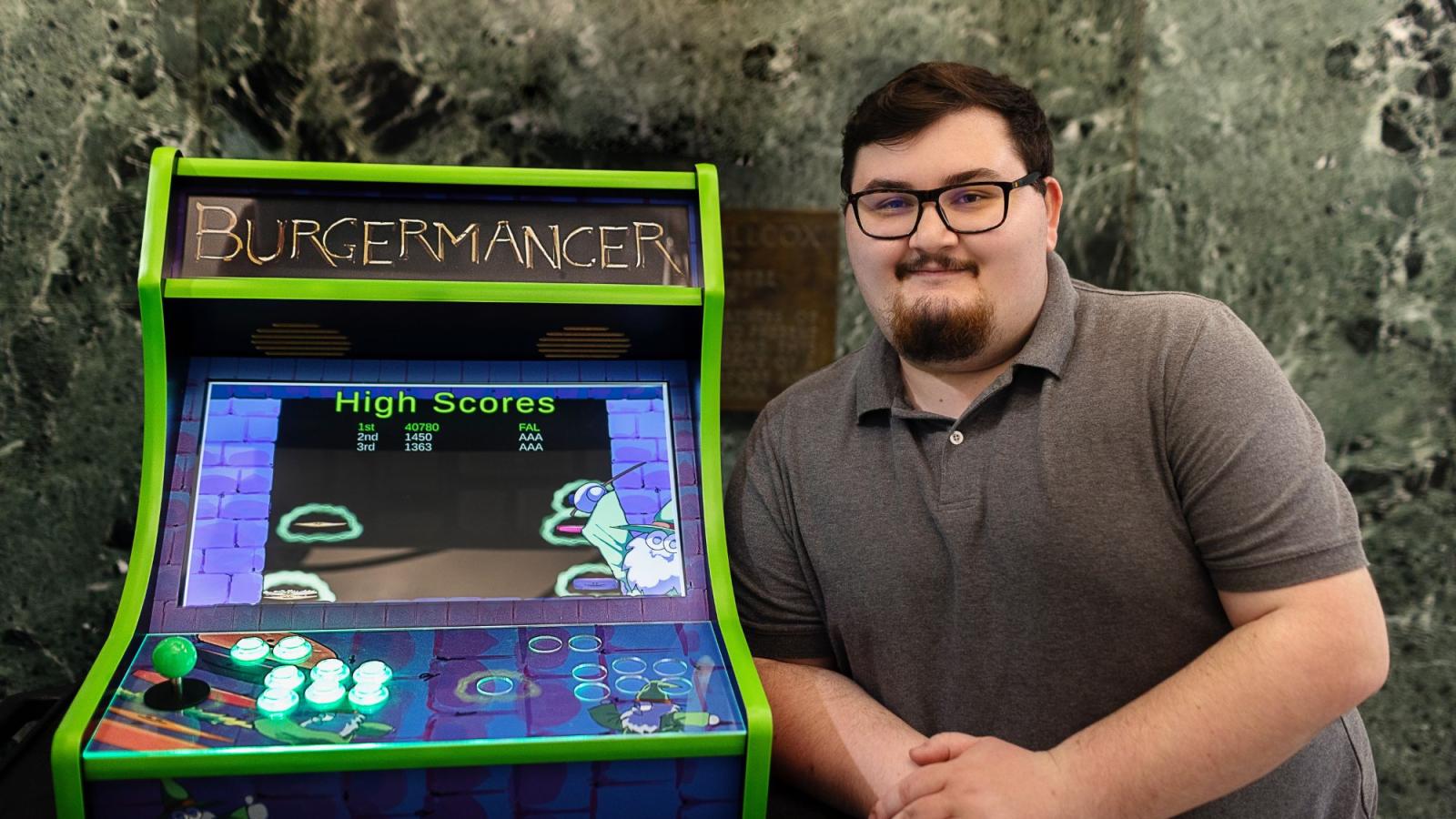
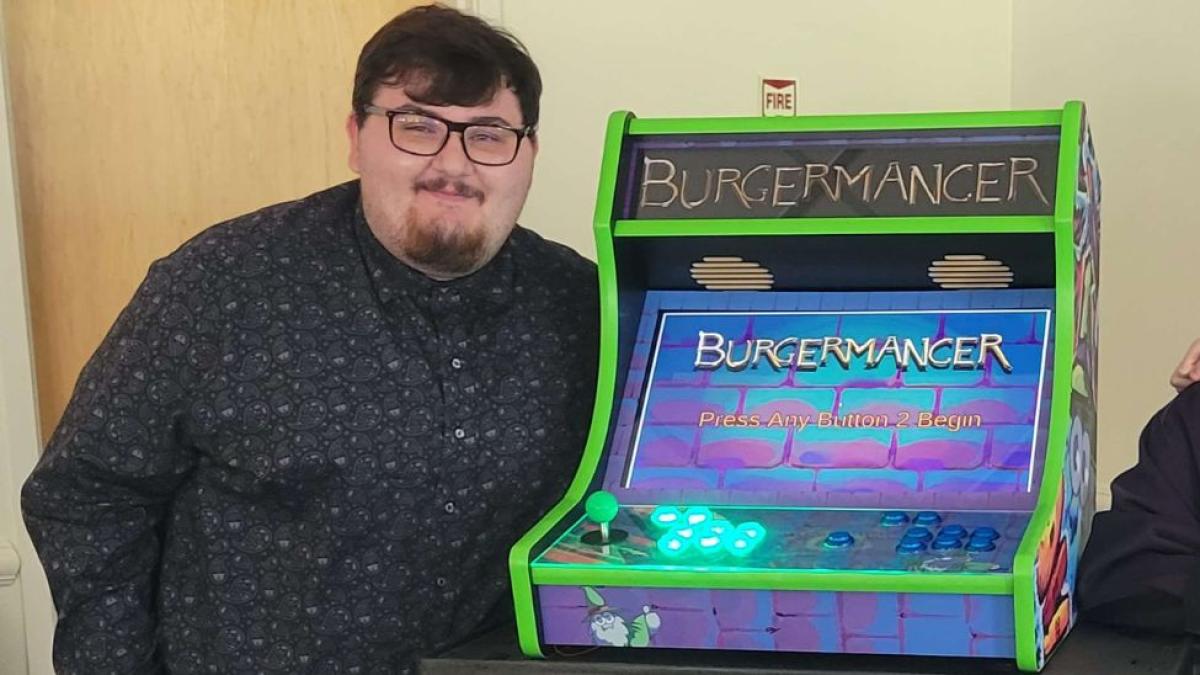
Michael Falco—who goes by Falco—came to Pace to study computer science with the hopes of building video games. When he took a new course, Game Development for Everyone, it opened up a world of possibilities and led to Falco not just programming but physically building an arcade-style game, which is playable in person on the Pleasantville campus.
Students like Falco who are deeply passionate about building games led to the creation of the new BS in Game Development, which launches Fall 24.
We asked Falco to tell us about how his passion for games was able to unfold and grow at Pace University.
What brought you to Pace University?
Originally when looking for a college I wanted somewhere far enough away to do my own thing but close enough to home that I could come home for Sunday dinner if I was inclined. When visiting the campus I liked how the freshman dorms weren't the typical cinder block asylums I saw at other places I visited.
Tell us about your experience with game development at Seidenberg
At the end of my sophomore year I began to grow frustrated with the lack of game development focused classes at Pace as that was something I was passionate about learning. Luckily enough, my junior year I took Game Development for Everyone (despite being advised not to, as I wouldn't receive any credits for it). It turned out to be the best decision I've made at this university, hands down. Game Development for Everyone which taught me more about scripting then some of my core Computer Science classes for my major. The class allowed for a lot of creative freedom when it came to the projects and it helped me get a grasp on the fundamentals of independent unity game development. I loved that class so much that the projects I worked on were the basis of my honors thesis.
What opportunities did you get at Pace?
During my time at Pace I had an abundance of help from every corner of this university—friends, faculty, and staff all gave me endless opportunities to develop myself and my career. The most notable opportunity was everything the Honors college offered, such as the mentor program and the thesis project. Because of the mentor program, I was able to meet new lifelong friends and was able to work part time and eventually move to full time in the Client Support Office doing IT work here at Pace University. While working full time, I developed my honors thesis which pushed me to work outside of my comfort zone of my own technical skill sets, as well as to reach out and network for talent to collaborate with. At one point, I was managing programming the game myself, coordinating with an artist and a musician, managing the budget for funding the materials, doing research, and working my full-time job. Needless to say, I was given ample opportunity to gain experience here
What’s next for you?
Currently I am finishing up my graduate degree, the MS in Cybersecurity here at Pace while still working IT. I hope to round out my toolset and apply for bigger and better things after graduation. As for game development, I am still passionate about the medium and see myself making more games in the future.
What advice do you have for future students?
The best advice I can give is be open to every opportunity. The staff at Pace—and especially Seidenberg—love opening doors for student creativity and expression as well as general skill set growth. Go to every event, meet new people and do the projects you are passionate about, even if nobody has done it before at Seidenberg.
Anything else you’d like to add?
Visit my website to play the games I've made so far! Also make sure to go to the Honors Lounge in Kessel Student Center on the Pleasantville campus to play my arcade game, **BurgerMancer** in person! For anything else you can reach me on LinkedIn!
More from Pace
Sachin Archer (BS in Computer Science ’25) is a Seidenberg student who traveled with the NYC Design Factory to Geneva, Switzerland during the Fall ’22 semester. While there, Sachin and his teammates met experts from CERN, the European Organization for Nuclear Research, and collaborated with other teams from the Design Factory Global Network.
Nishant Doshi moved from India to New York to make the most of the opportunities Pace has to offer—and he’s succeeding.
Seidenberg professor James Lawler was awarded Best Conference Paper and Best Paper of the Innovative Education, Pedagogy and Teaching Track for "A Case Study for Enabling Autistic Students to Enter Best-of-Class Career Programs in Science, Technology, Engineering and Mathematics (STEM)", at the 59th Annual Meeting of the Institute for Operations Research and Management Science.
Visualizing Change: Q+A with Jack Nierenberg '25
Jack Nierenberg '25, an Art major and vice president of the transportation advocacy group Passengers United, shares insights on his impactful advocacy work and the art of blending economics and photography.

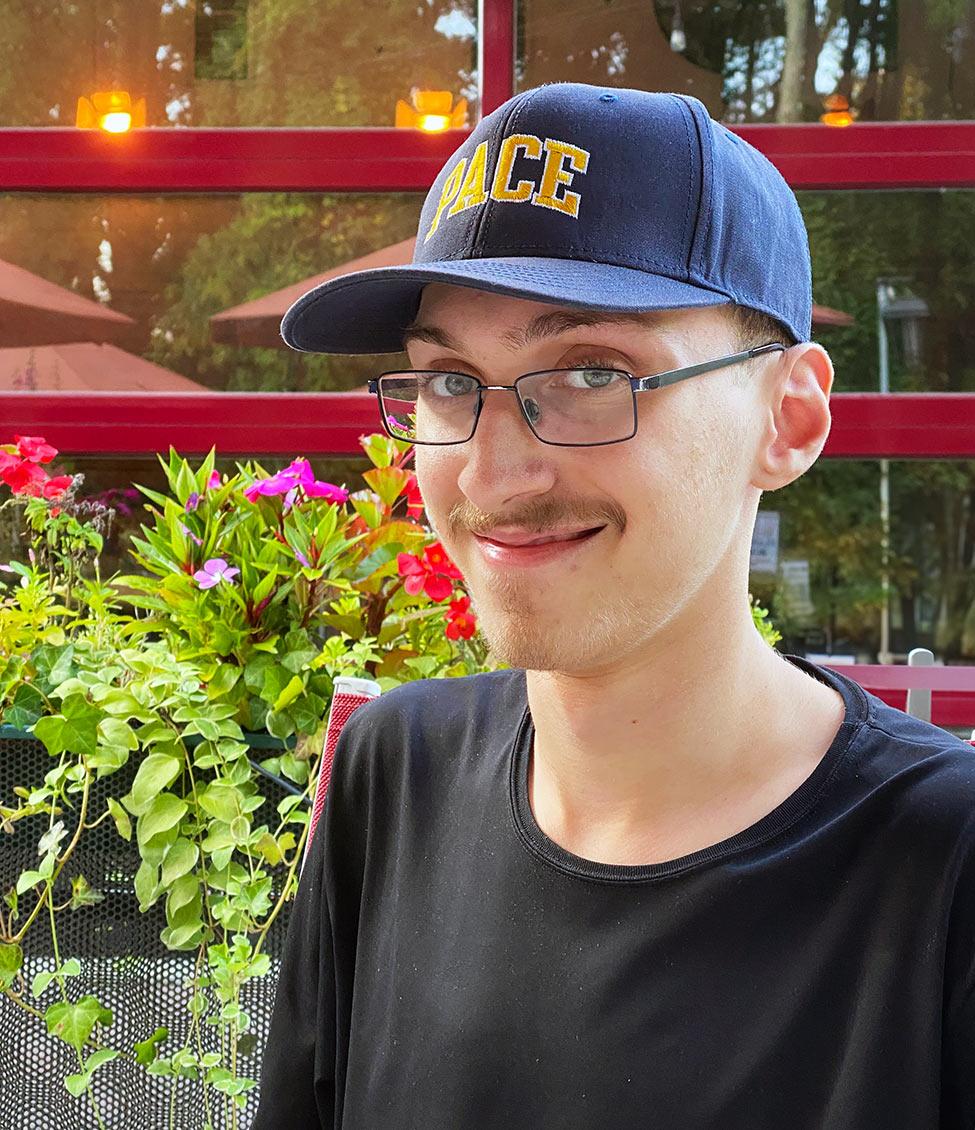
Jack Nierenberg
Class of 2025
Jack Nierenberg serves as vice president for transportation advocacy group Passengers United and was recently featured on NY1 after speaking at a Metropolitan Transit Authority (MTA) hearing on fare hikes.
What inspired you to serve in this way and what are you most proud of about your work?
As a native New Yorker, I have always been passionate about our public transportation, which I rely on every day. When I learned that Passengers United (a group that I had never heard of before) was able to get regular train service restored after it had been drastically cut, I knew I had to get involved. My volunteerism began with developing a brand, but I soon became active with the substance of the advocacy work. Many of Passengers United’s accomplishments are small, yet they make a profound difference for transit riders, particularly lower-income riders in the outer boroughs and regions, seniors, and those with disabilities. For example, I effectively petitioned the MTA to restore a critically important evening train in eastern Long Island that many essential workers rely on, something I am very proud of. Our work continues to strive to ensure that everyone has transit options that work for them.
How did you become interested in pursuing the Bachelor of Arts in Art?
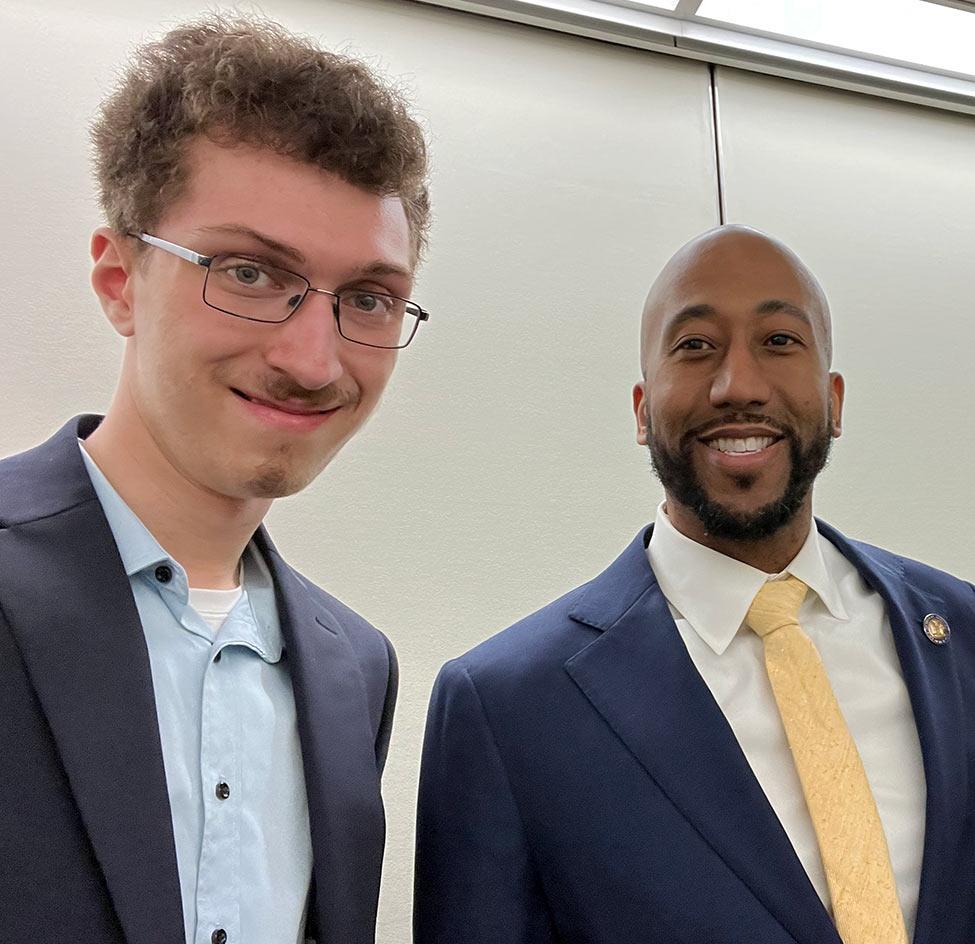
I already had a background in film and video, especially since my father is a noted documentary filmmaker and, for many years, have been editing professionally both for him and others. I came to Pace, however, as an undecided student, as I had a feeling the answer to “what do I want to do for the rest of my life?” would change. I already had an interest in graphic design, so when I took two graphic design classes during my second semester, I knew this was the direction I wanted to go in my undergraduate studies. I also discovered a love for economics and have thus declared a minor in it.
Why did you choose to attend Pace?
I wanted to stay in New York, and when Pace accepted me into the Pforzheimer Honors College, I found the opportunity very compelling. I was also drawn by Pace’s overall atmosphere, that of a modern urban campus that still manages to have smaller, more intimate classes.
During the spring 2023 semester, you participated in At a Point of Change II, an outdoor student photography exhibition, which, through the course, Seeing the World Differently...Through Economics and Photography, combined economics with photography to represent the United Nations’ Sustainable Development Goals, set to be achieved by 2030. Please describe your experiences with this course and exhibition.
Throughout the course, taught by Professors Anna Shostya and Inbal Abergil, we were given several assignments to photographically document economic issues around us. Each assignment had an underlying theme (e.g., economic growth or discrimination), but the open-endedness of the assignments allowed us to cover more specific topics that, as students, we were passionate about. Ultimately, we each chose two or three photos for the exhibition that, together, created the most impactful stories. Predictably, I went right in to discuss the many prevalent issues around transportation in New York City, focusing on how the inequities in our public transit disproportionately affect those who live in the outer boroughs of the city.
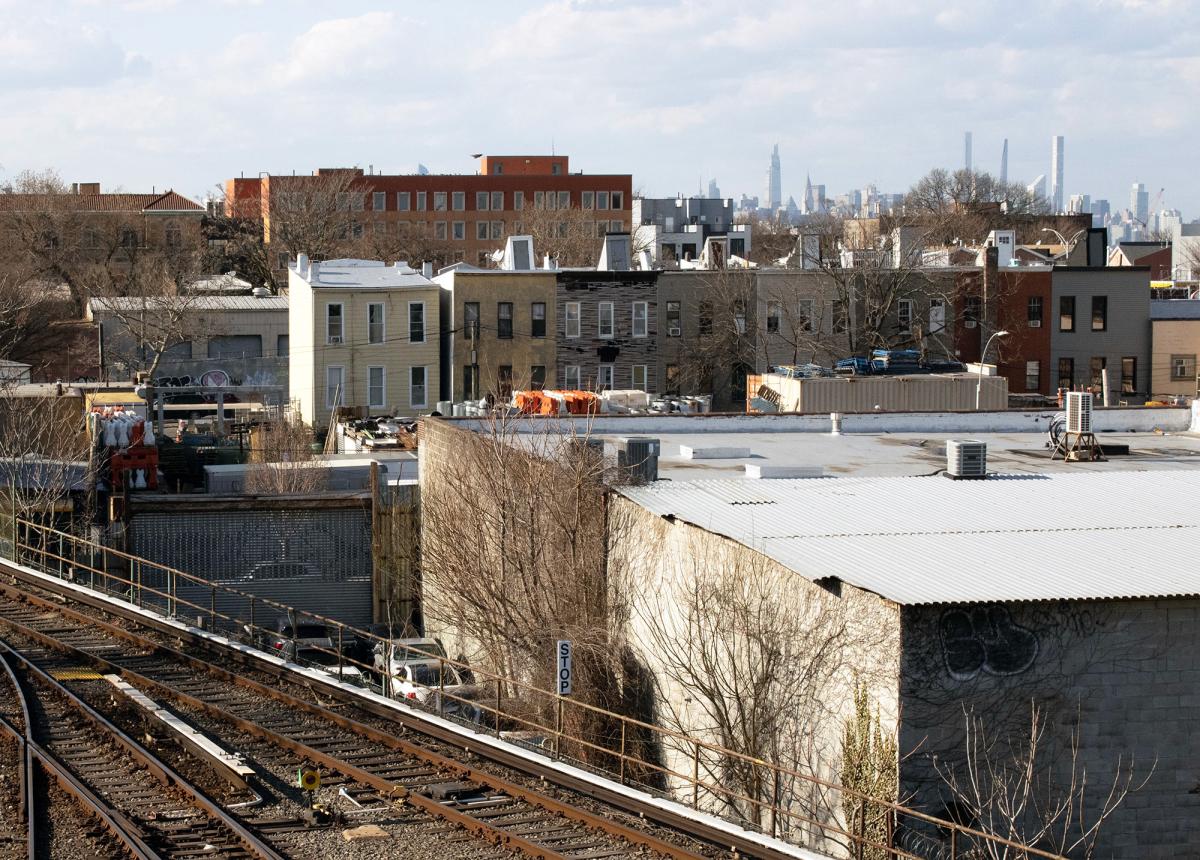
Overall, this class was an opportunity to not just gain valuable insight, but actively empathize with the people involved and hopefully inspire others to do the same. It is especially meaningful to know that my work, as well as that of my talented peers, is helping to spark necessary change in the world.
What have your experiences been like with the Art Department?
At this point, I’ve taken three graphic design and two photography classes in the Art Department, and I’ve been thoroughly enjoying them! My professors, Robert Wilson, Anders Goldfarb, and Jillian McDonald, are very knowledgeable and engaging, and the work itself has been very rewarding.
What other activities and organizations, if any, have you been involved with as a student?
I was involved with the Commuter Student Organization at Pace, which, at the time, was the only one on the New York City campus that specifically supported commuter students and advocated on their behalf. In fact, I was one of the students who got the organization back up and running in my second semester. Getting a student lounge on campus was a major thing we advocated for, and I am very pleased that one is finally in the works! I have also been somewhat active with the Student Government Association and look forward to checking out more clubs on campus, including the Photography Club.
“It is especially meaningful to know that my work, as well as that of my talented peers, is helping to spark necessary change in the world.”
What would you like to do upon graduation/what are your career goals?
I have decided to pursue a master’s degree in urban planning with a focus on transportation equity and am looking into various graduate programs for that.
What advice would you like to give to our current students?
Your passion can be expressed in a way that can not only benefit you but also better our world, and I believe it's very important to try to do that, even in small ways. Trust your intuition, don't lose hope, and keep persisting. However long it takes to realize your contribution to the world, keep reminding yourself that your existence is valuable.
More from Pace
Pace University will host At a Point of Change II, an outdoor student photography exhibition, which will be on view in front of One Pace Plaza from May 1–15 before moving to Pace’s Westchester campus until October 1.
Anastasia Khanukov, highlights her unique path from an interest in politics and international relations to a deep dive into economics and research, exploring topics that impact society profoundly.
This past summer, Clinical Assistant Professor of Art Derek Stroup, MFA, and Katie Romanyshyn ‘25, Film and Screen Studies, engaged in a faculty-student collaboration through the Amelia A. Gould Assistantship that expanded both of their creative boundaries and artistic possibilities in the most unexpected of ways.
Elisabeth Haub School of Law at Pace University Selects Five Students to Serve as Prestigious Sustainable Business Law Hub Student Scholars
The Elisabeth Haub School of Law at Pace University is proud to announce the selection of its second class of Sustainable Business Law Hub Student Scholars. The Sustainable Business Law Hub Student Scholars Program (“Hub Scholars Program”) was launched in early 2023 as a key component of the Sustainable Business Law Hub in creating the next generation of sustainable business and ESG (environmental, social and governance) lawyers. This year, five additional students have been selected to serve as Sustainable Business Law Hub Student Scholars (“Hub Scholars”) and will benefit from ESG internships and externships at prestigious law firms, financial institutions and businesses.
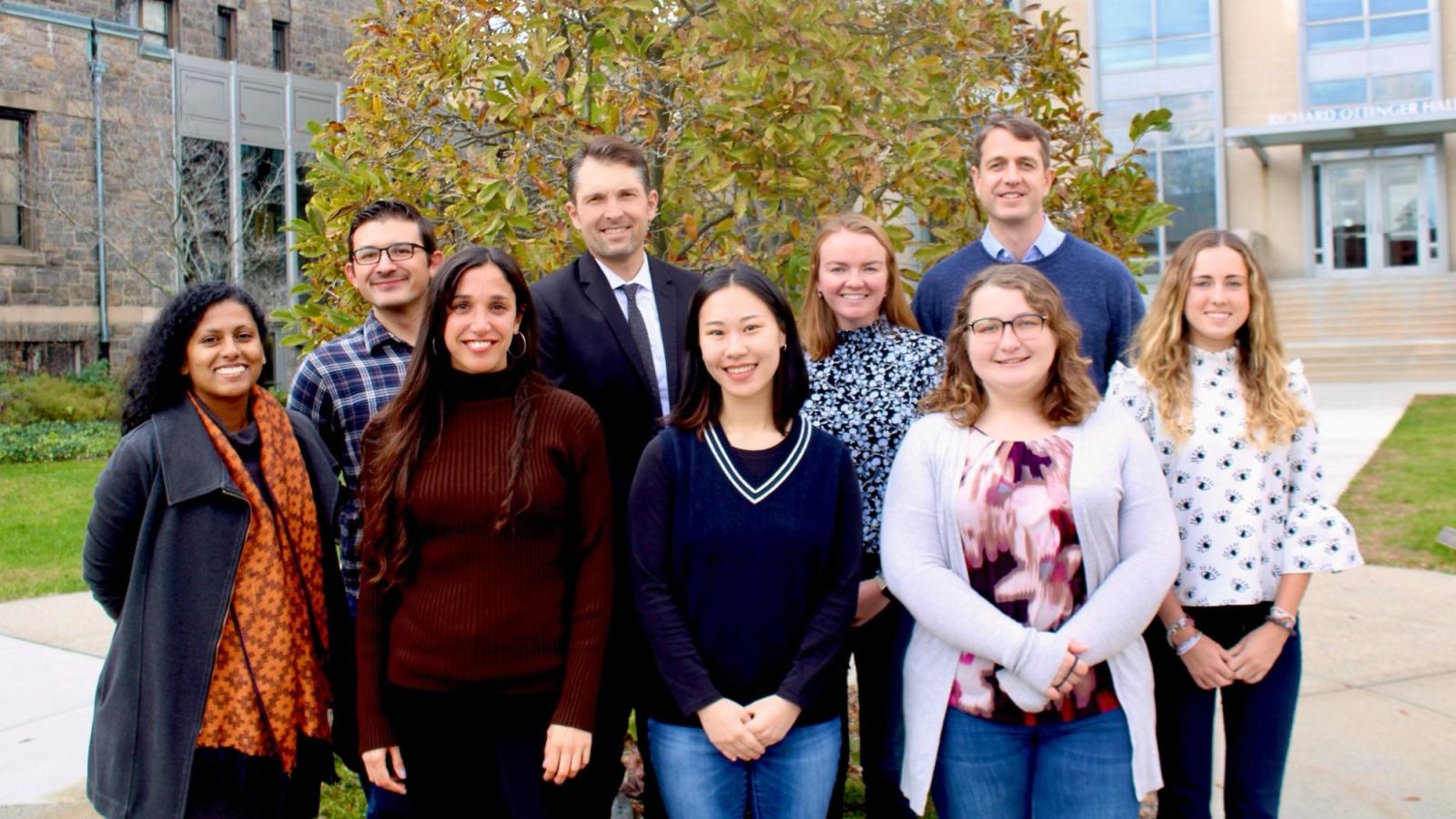
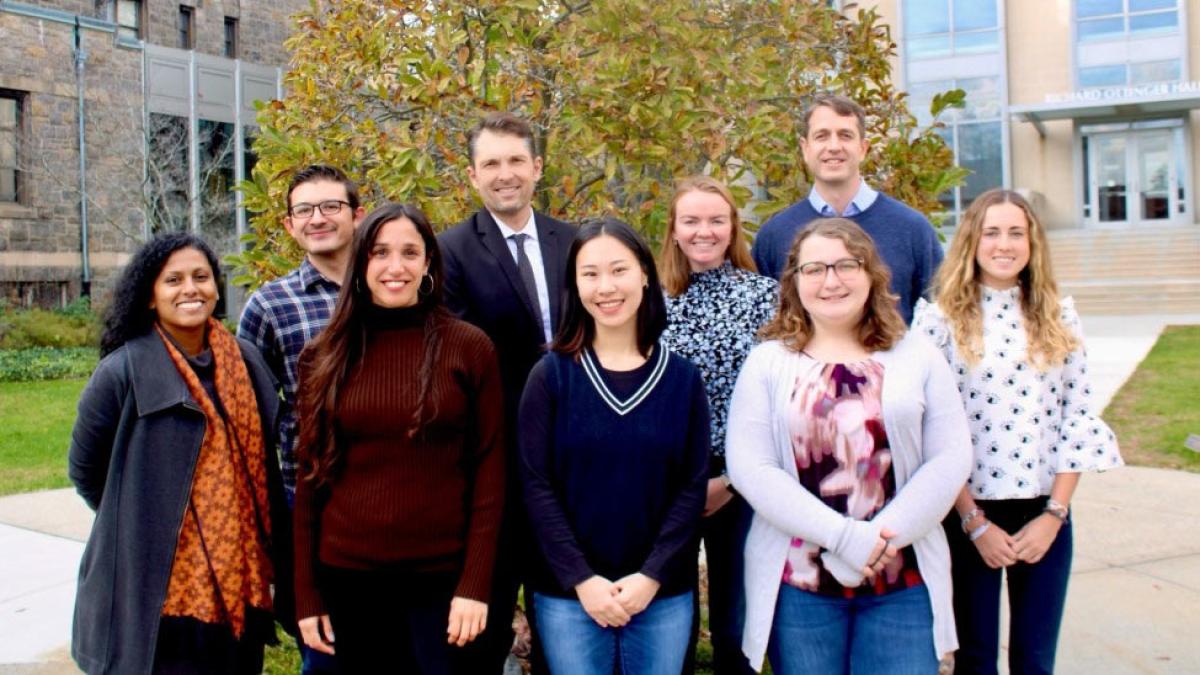
The Elisabeth Haub School of Law at Pace University is proud to announce the selection of its second class of Sustainable Business Law Hub Student Scholars. The Sustainable Business Law Hub Student Scholars Program (“Hub Scholars Program”) was launched in early 2023 as a key component of the Sustainable Business Law Hub in creating the next generation of sustainable business and ESG (environmental, social and governance) lawyers. This year, five additional students have been selected to serve as Sustainable Business Law Hub Student Scholars (“Hub Scholars”) and will benefit from ESG internships and externships at prestigious law firms, financial institutions and businesses.
“The Hub Scholars Program has been a tremendous addition to our Sustainable Business Law Hub,” said Jason Czarnezki, Kerlin Distinguished Professor of Environmental Law and Associate Dean of Environmental Law Programs and Strategic Initiatives, as well as inaugural Faculty Director of the Hub. “Last year’s inaugural class of six Hub Scholars gained ESG experience in a variety of settings, as interns at law firms, working with in-house legal teams, as well as within an NGO/government body. These experiences have allowed our top students interested in ESG and sustainable business to pursue these interests in a meaningful way.”
The Sustainable Business Law Hub Scholars Program is a curricular, scholarship, and mentorship program for students pursuing careers in sustainable business law and as ESG lawyers. The highly-selective program is designed for students with outstanding entrance credentials and a well-articulated passion for pursuing a career at the intersection of sustainability, business law, and environmental law. Hub Scholars will have the opportunity to receive practical training and experience in using the law to foster sustainable business practices through an internship/externship experience with an ESG practice group in a law firm, under the guidance of in-house counsel within a corporate entity, or within an NGO/government body working in the ESG space. Hub Scholars can also take advantage of targeted training workshops and programs that will prepare them for these externship experiences while working closely with a faculty supervisor and a professional mentor in the field to develop their interests and to identify networking and job opportunities.
Maggie Pahl ’23 was a member of the inaugural class of Sustainable Business Law Hub Student Scholars. She describes the experience as one of the most formative experiences during her time at Haub Law. “My participation as a Hub Scholar gave me the opportunity to meet and talk with lawyers and business leaders that are as equally passionate as I am about sustainable business,” said Maggie. “Being an inaugural scholar was especially exciting because the inception of the Hub came at a time when US and EU mandatory ESG disclosure laws were at their infancy. The textbooks and law review articles on novel sustainable business topics are being written (and re-written as international regulatory updates are released) at this very moment. Haub Law is at the forefront of producing a new generation of ESG lawyers, and I was fortunate enough to be part of that. The Sustainable Business Law Hub will produce great research and a strong network for future Haub Law students to tap into and the environment will benefit as a result.”
During the course of their studies, students receive curricular guidance that will allow them to receive the Advanced Environmental Law Certificate while pursuing courses relevant to sustainable business law, including the Business Law Path to Practice and the option to pursue an MBA with the Lubin School of Business as part of the joint JD/MBA program. Haub Law also offers courses on sustainable business law which include topics such as the definition of ESG, corporate responsibility and the triple bottom line; the role of the corporate board in achieving sustainability; social impact investing and ESG ratings; and ESG and climate disclosures, voluntary ESG reporting and risk management. Importantly, Hub Scholars will also have access to a wide network of Haub Law alumni, Lubin alumni, the Hub’s Advisory Board, and subsequent Hub Scholar alumni, who serve as mentors to new Hub Scholars.
Haub Law’s Sustainable Business Law Hub serves as an incubator space, student-training program, research endeavor, and think tank devoted to addressing global sustainability challenges through policy and research projects, relationships with the business community, and capacity building in private environmental governance. The Hub incorporates the three pillars of sustainability—economic, social and environmental welfare—into global business practices by engaging in research and policy development, improving public law and governance, and working with existing industry, the small business community, startups, and the community at-large to develop and employ innovative private environmental models and sustainability practices, such as those that promote a circular economy. Working hand-in-hand with faculty experts, students participating in the Hub receive practical training and experience in using the law to foster sustainable business practices.
Biographies of New Class of Hub Student Scholars
Ashley Han is a JD candidate at the Elisabeth Haub School of Law at Pace University, pursuing an Advanced Certificate in Environmental Law and a Business Law-Financial Compliance Path to Practice Track. She graduated from Syracuse University with a BA in Sociology. During her time at Haub Law, Ashley interned for Pfizer's Global Supply Division and Paul Weiss' Sustainability & ESG Advisory Practice. She also was a research assistant for Policy Research Director Thomas Bourgeois at the Land Use Law Center and a judicial intern for Judge Seibel at the United States District Court for the Southern District of New York. Ashley is currently serving as a Senior Associate for the Pace Environmental Law Review and a student intern for the Food and Farm Business Clinic.
Hailey Pedicano is a 3L at the Elisabeth Haub School of Law at Pace University, working towards a JD Degree with an Advanced Certificate in Environmental Law. Prior to law school, Hailey worked in marketing as a Project Manager, a role that frequently involved corporate stewardship communications. This largely drove her interest in becoming a Sustainable Business Law Scholar. Last year, Hailey co-led the Sustainable Business Panel featured at the New Directions in Environmental Law academic conference. This past summer, Hailey worked as a Summer Associate at Cuddy & Feder, LLP., and she spent her 1L summer as a Summer Law Clerk at the Federal Emergency Management Agency (FEMA). Currently, Hailey is a Land Use Scholar at the Pace Land Use Law Center and a Senior Associate on the Pace Law Review. She is also a Student Attorney for the Pace Environmental Litigation Clinic.
Joshua Briggs is a JD candidate at the Elisabeth Haub School of Law at Pace University, pursuing an Advanced Certificate in Environmental Law. He is a dedicated professional with a deep passion for energy policy and sustainability. Through his legal internships at organizations like the Natural Resources Defense Council, the Center for Progressive Reform, and the Pace Energy & Climate Center, he has gained valuable insights into the complexities of energy regulation and planning. An environmental storyteller, Joshua has a BA in digital media management and worked as a filmmaker prior to law school. Upon graduation, he hopes to combine his passions for the environmental and storytelling to advance a sustainable energy future.
Karina Krul is a JD candidate at the Elisabeth Haub School of Law at Pace University. Next Fall she will begin pursuing her master’s degree at Yale. Karina graduated in 2019 with a BS in Marine Biology from the University of New Haven. She completed her Honors Thesis on how environmental awareness effects attitude toward sustainable development, which she presented at the 2019 Society of Applied Anthropology Annual Meeting. She is currently a junior associate for Pace International Law Review, an intern with the Permanent Mission of Costa Rica to the United Nations, and a Law Clerk at Richman Law & Policy, an impact litigation firm that uses consumer protection law to hold corporations accountable for their environmental representations. Karina is passionate about a future that operates through inclusive, environmentally sound governance by ensuring every stakeholder gets a seat at the table. This summer, she will be a law clerk with Earthjustice.
Morgan E. Martin graduated from Rollins College in 2021 with a degree in Public Policy and Political Economy. Before she came to law school, she moved to Bali Indonesia to volunteer for an NGO where she taught English and sustainability lessons in a local village and worked on a coral reef restoration project. During her first year of law school, she volunteered at the Land Use Law Center. She is currently a Junior Associate for Pace Environmental Law Review and Vice-Chair for the Jeffery G. Miller National Environmental Moot Court Competition. This past summer she worked for a boutique corporate litigation firm in Manhattan, and she is still working for them part time. She will be a summer associate for Fenwick & West in their corporate practice. Morgan hopes to pursue a career in Sustainable Business practices, and perhaps gravitating towards the climate-tech field as it emerges.
Biographies of Returning Hub Student Scholars
Brianna Grimes is a 3L at the Elisabeth Haub School of Law at Pace University. She graduated in 2019 from Syracuse University with a BA in Biology. During law school, Brianna has joined many organizations and undertaken numerous leadership roles, including serving as Managing Editor of the Pace Environmental Law Review. In the past, Brianna has worked as a Maritime & International Law Extern with the United States Coast Guard Judge Advocate General, a Judicial Intern for Judge Richard Sullivan in the United States Court of Appeals for the Second Circuit, and as a Summer Associate in Baker Botts' Washington, DC Environmental, Safety, and Incident Response team. She was recently selected as a Knauss Fellow by the National Oceanic and Atmospheric Administration (NOAA) Sea Grant program and plans to move to Washington, DC in February to begin her one-year fellowship.
Brooke Mercaldi is a dual degree candidate at the Elisabeth Haub School of Law and the Yale School of the Environment, and she will graduate with her JD and Master of Environmental Management after the Fall 2023 semester. Brooke is currently at Yale where she is a Fellow in Yale Law School’s Law, Ethics & Animals Program and a Research Assistant in its Climate Change & Animal Agriculture Litigation Initiative. Throughout the dual degree program, Brooke has completed internships in the New York State Department of Environmental Conservation, United States District Court for the Southern District of New York, ACT Commodities Inc., and Save the Sound. Brooke also worked in Haub Law’s Land Use Law Center and Global Center for Environmental Legal Studies, and she served as a Research & Writing Editor for the Pace Environmental Law Review.
"Nightmare Scenario": Legal Scholars Alarmed Over Trump's "Plot To Abuse His Power" For Revenge
“This is the nightmare scenario that to millions of Americans is unfathomable but realistically possible,” Bennett Gershman, a former New York prosecutor and law professor at Pace University, told Salon. “It is also the scenario that millions of Americans look forward to with glee and the opportunity for retribution against the enemies of Trump.” Ultimately, the Supreme Court will “need to step up and prevent Trump’s plot to abuse his power,” Gershman said. Invoking the insurrection act and the ex-president’s plan to punish critics is “obviously unconstitutional.”
